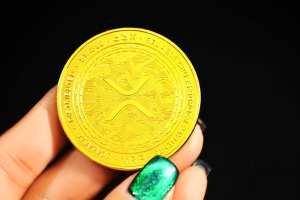Indeed, the case for utility has just initiated a new chapter as XRP moves into the wider blockchain universe to be used according to the wishes of its holders.
On Tuesday, Finance Feeds covered the integration of Wrapped XRP (wXRP) on Binance and how it could be used to trade the SEC v. Ripple lawsuit in the United States while crypto exchanges have XRP delisted.
Attorney John Deaton, representing the interests of more than 50,000 XRP Holders who feel the Securities and Exchange Commission failed to protect them, has recently tweeted about wXRP and how it proves his point regarding the Amicus Curiae argument.
“Very significant news for #XRPHolders regarding our amicus argument. It demonstrates another reason to own #XRP independent of Ripple’s efforts. Today’s #XRP isn’t 2013’s Token.”
Very significant news for #XRPHolders regarding our amicus argument. It demonstrates another reason to own #XRP independent of @Ripple’s efforts. Today’s #XRP isn’t 2013’s Token. https://t.co/YcWfOiIsuB
— John E Deaton (@JohnEDeaton1) January 18, 2022
Indeed, the case for utility has just initiated a new chapter as XRP moves into the wider blockchain universe to be used according to the wishes of its holders.
The Howie Test, which is used in the United States to determine if an asset is an investment contract, requires these four criteria: 1) an investment; 2) in a common enterprise; 3) with a reasonable expectation of profits; 4) from the efforts of others.
According to John Deaton, wXRP proves once again that XRP is independent of the efforts of Ripple Labs, the main defendant in the SEC v. Ripple lawsuit.
FX and CFD brokers must go multi asset: Join free webinar from TraderEvolution to learn how
Judge Analisa Torres granted the Amicus Curiae status to XRP Holders last year after John Deaton presented three arguments: 1) legal standard; 2) XRP Holders satisfy all four factors of intervention; 3) Today’s XRP is a government recognized form of currency and is utilized by XRP Holders completely independent of Ripple or its executives.
Since its inception, Ripple had plenty of legal issues with government authorities in order to finally find a regulatory space for its business and its native digital asset, XRP.
The Financial Crimes Enforcement Network (FinCEN) settled with Ripple in 2015 in the first civil enforcement action against a “virtual currency exchanger”.
At the time, Ripple was found to have violated several requirements of the Bank Secrecy Act (BSA) by acting as a money services business (MSB) and selling its virtual currency, known as XRP, without registering with FinCEN, and by failing to implement and maintain an adequate anti-money laundering (AML) program designed to protect its products from use by money launderers or terrorist financiers.
Ripple was fined a civil money penalty of $700,000, but on the upside, it got closure about its status. FinCEN recognized XRP as a virtual currency, which would be registered exclusively with that regulator.





